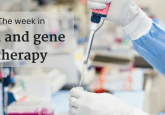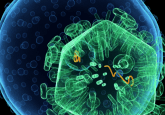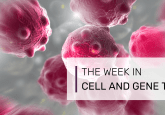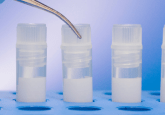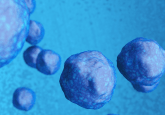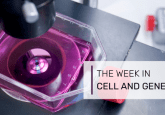Top 5 grants in regenerative medicine: March 2021
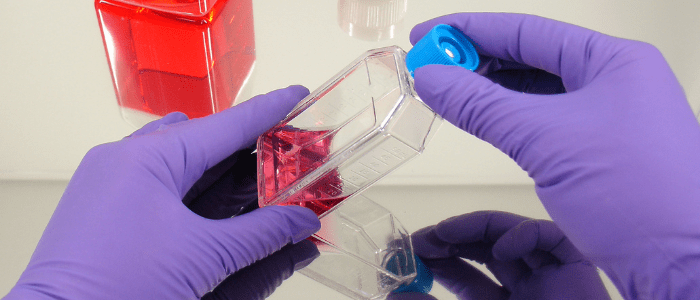
This month’s top grants in regenerative medicine, sourced from Dimensions, includes projects on: a precision cell replacement strategy for Parkinson’s disease; a novel type of in vivo reporter system that can label and genetically engineer the cellular environment of any cell of interest; studying the regulation of lymphocyte stemness by fate mapping of single T and NK cells; generating beta cells from stem cells using novel regulators; and fetal-inspired hierarchical biomaterials for regeneration in a harsh environment.
Check out this month’s top grants in regenerative medicine:
- A precision cell replacement strategy for Parkinson’s disease
- Unbiased niche identification and manipulation in stem cells and cancer
- Road to memory: studying the regulation of lymphocyte stemness by fate mapping of single T and NK cells
- Generation of beta cells from stem cells using novel regulators
- Fetal-inspired hierarchical biomaterials for regeneration in a harsh environment: the nucleus of the intervertebral disc FETBIO
A precision cell replacement strategy for Parkinson’s disease
This research proposal aims to identify how human adult substantia nigra neurons (A9/SNs) are generated in order to develop a novel cell type-specific precision cell replacement strategy for Parkinson’s disease. Within the proposal, it is hypothesized that a yet undefined network of transcription factors and regulators control A9/SN subtype specification, and that such factors can be used to engineer A9/SNs starting from human pluripotent stem cells or astrocytes.
The work aims to use cutting-edge CRISPR and single-cell methodologies to identify the factors controlling the specification of human A9/SNs, and the team will develop two novel cell-replacement strategies for Parkinson’s disease. This involves either transplantation of human pluripotent stem cell-derived progenitors forward-programmed into A9/SNs or reprogramming of endogenous striatal glia in situ into A9/SNs, using a method that was recently developed.
Funding amount: USD$3.1 million
Funding period: 1 March 2021–28 February 2026
Funder: European Research Council
Research organization: Karolinska Institute (Solna, Sweden)
Unbiased niche identification and manipulation in stem cells and cancer
For this project, researchers aim to generate a novel type of in vivo reporter system, which can label and genetically engineer the cellular environment of any cell of interest. The team hope to use a multidisciplinary approach that combines the EnviroTag system with single-cell sequencing, 3D-reconstructed confocal microscopy and organoid technology to study the dynamic roles of niche composition during tissue regeneration and cancer progression, primarily focusing on the GI tract.
The objectives for this research include: i) establish a spatial in vivo reporter system for microenvironmental labelling and manipulation; ii) map functional interactions of stem cells and their niches during homeostasis and active regeneration; and ii) identify the minimal niche requirements for metastatic engraftment and proliferation.
Funding amount: USD$2.2 million
Funding period: 1 March 2021–28 February 2026
Funder: European Research Council
Research organization: ETH Zurich (Switzerland)
Road to memory: studying the regulation of lymphocyte stemness by fate mapping of single T and NK cells
This research project aims to answer three fundamental questions in immunobiology. First, do exhausted T-cell responses to chronic infection and adaptive-like immune responses of NK cells also rely on the stem cell-like potential of individual cells? Second, do single-cell-derived T and NK cell families enter the memory or memory-like exhausted compartment on a direct road or through re-differentiation, after passing through and early effector state? Last, how is the development of these T and NK cell families influenced by their founding members’ fundamental cellular properties, such as asymmetric cell division, quorum sensing and cell-cycle speed?
Funding amount: USD$1.8 million
Funding period: 1 March 2021–28 February 2026
Funder: European Research Council
Research organization: Technical University of Munich (Germany)
Generation of beta cells from stem cells using novel regulators
This proposal aims to identify and characterize key regulators of glucose stimulated insulin secretion (GSIS) and other insulin-related pathways in the beta cell in order to improve beta cell generation protocols from stem cells. Using computational analysis, the researchers identified previously unknown candidate transcription factors that likely control GSIS in the pancreatic beta cells. The team hope to characterize their impact on beta cell function and use this knowledge to improve the functionality of stem cell-generated beta cells, with particular emphasis on GSIS.
Funding amount: USD$715,000
Funding period: 1 March 2021–30 August 2025
Funder: Diabetes UK
Research organization: University of Birmingham (UK)
Fetal-inspired hierarchical biomaterials for regeneration in a harsh environment: the nucleus of the intervertebral disc FETBIO
FETBIO has set the objective of inducing tissue-specific regeneration of the nucleus before severe degeneration occurs. This will be achieved through biological scaffolds that will be engineered to recapitulate key features of fetal extracellular matrices (fECM).
The hypothesis behind this project revolves around how resident cells will respond to the fetal-inspired biomaterial by synthesizing a new healthy matrix. The great challenge for this project is to recreate a non-degenerated microenvironment that will instruct endogenous progenitor cells to differentiate towards a healthy/native phenotype.
Funding amount: USD$279,000
Funding period: 1 March 2021–29 February 2024
Funder: Foundation for Science and Technology (FCT)
Research organization: University of Porto (Portugal)
Brought to you with support from:

